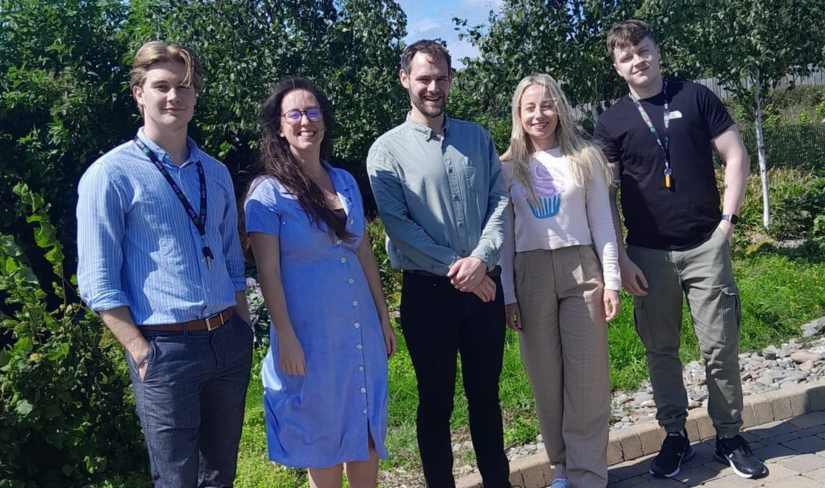SQR to Partner with Charity on Launch of Accessibility Pilot Programme

24 October 2023
SQR Group Ltd is delighted to announce it is partnering with visual impairment charity, Sight Matters, the trading arm of Manx Blind Welfare Society, on a user testing pilot designed to promote digital accessibility for all.
The scheme will provide an opportunity for the visually impaired and blind community to share their unique insights and positively impact wider society in a bid to improve the inclusivity and accessibility of online services.
What is Digital Accessibility?
Digital accessibility refers to the practice of ensuring that websites, applications, and all other digital services are designed in a way that everybody – regardless of ability – can perceive, understand, navigate, and interact with them effectively.
Whilst accessibility is a legal requirement; it’s also a moral imperative that can empower individuals. Crucially, it can foster an inclusive digital ecosystem that is open and welcoming to all. Yet there’s currently a lot more to be done. UK charity, AbilityNet, recently reported that over 90% of websites are somewhat inaccessible to people with disabilities who rely on assistive technology, which means that they’re excluded from the vast majority of the digital landscape.
A Collaborative Approach
SQR’s Head of Commercial, Steven Webster, recently had the pleasure of speaking with one of the 500+ service users supported by Sight Matters. The exchange took place at the Isle of Man Fintech Innovation Challenge (of which SQR was crowned champion), where Steven was eager to learn about the daily difficulties people with visual impairments can face when interacting with online services.
The SQR team is committed to ensuring that the company’s Digital Identity application and e-KYC dashboard are accessible to all, and as a result requested a meeting with Sight Matters to discuss how these users could be better supported.
This led to the development of an accessibility pilot programme, which presents an exciting opportunity to improve the accessibility of the digital identity and identity verification landscape. Once underway, the scheme will be rolled out to a wide range of organisations across the Isle of Man and beyond.
SQR’s CEO, Shelley Langan-Newton, expressed her pride in the collaboration, stating: “There are 253 million people in the world who are visually impaired. That is 253 million people who would struggle to use a solution to help digitally verify who they are, and would be unable to access the important services that it can unlock.
“The inability to access useful – and even in some cases vital - services is something that we as society need to aim to eradicate in all its forms. If you want to sign up for a new bank account for example, or prove your employment status for a job application, your ability to partake in everyday life becomes so much harder - if not impossible - if you can’t navigate a new online sign up process.
“More and more services are available online, which can make life simpler for many, but much, much harder too for others. As a digital ecosystem enabler with a key principle of accessibility, we are committed to making life better for all, and we are delighted to kick off this journey of improved accessibility by partnering with a local charity which is close in location, and close to our hearts.”
A More Inclusive Digital Ecosystem
Sight Matters believes that the Isle of Man can become a centre of good practice where anybody with a hidden disability can enjoy a fulfilling, valued life, free of discrimination.
The programme marks a significant stride towards creating a more inclusive digital ecosystem, and it is hoped that online experiences for those with visual impairments can be dramatically improved as a result.
Cathryn Bradley, CEO of Sight Matters, said: “We are delighted that SQR have taken such a proactive and progressive approach to digital accessibility. This is an issue that impacts many of our members, and finding a way of working to solve some of those problems while also empowering our members by giving them a ‘seat at the table’ is fantastic.”
